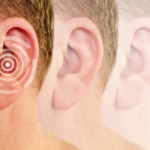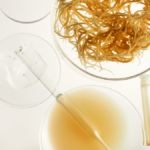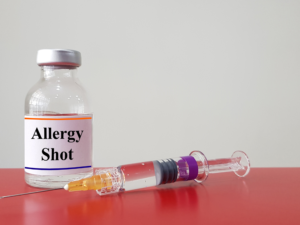“Can allergies lead to acne?” Yes, it’s possible!
If you’re searching for a quick answer, here it is: certain allergies can contribute to skin breakouts by causing inflammation and irritation that may worsen acne.
For a deeper dive into this skin saga, keep reading! Discover information on acne treatment, Q&A sessions, and more. It’s informative and enjoyable!
- The Science Behind Allergies and Acne
- Can Allergies Lead to Acne? How do Allergies Impact Skin?
- Common Triggers for Allergies Caused Skin Breakouts
- 6 Effective Treatments for Skin Breakouts
- What’s the Deal with Food Allergies and Acne?: Foods That Can Trigger Acne
- The Real MVPs: Healthy Snack Swaps and Convenient Supplements for Your Skin!
- FAQs: Allies in Your Acne and Allergies Battle
Disclaimer: This document is intended for informational purposes only and does not constitute professional medical advice, diagnosis, or treatment. Always seek the advice of your physician or other qualified health provider with any questions you may have regarding a medical condition. The information contained herein may not cover all possible causes, treatments, complications, or preventative measures pertinent to acne, and should not be considered as an exhaustive guide. Do not disregard professional medical advice or delay in seeking it because of something you have read on this topic.
The Science Behind Allergies and Acne
What Are Allergies?
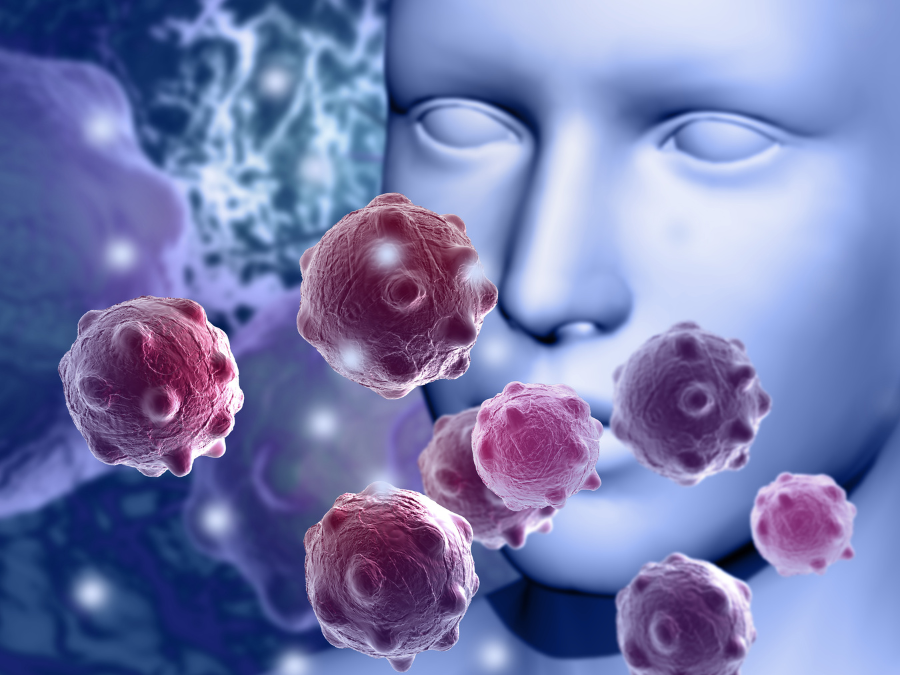
When allergies come to mind, we typically envision sneezing, itchy eyes, and runny noses as a result of our immune response.
But did you know your skin could be an allergy victim too?
In fact, some allergies spark off a skin reaction, like a clandestine sabotage on your quest for clear skin.
Can Allergies Lead to Acne?: Allergic Reactions and Skin
Imagine your skin is like a party venue, and allergies are uninvited guests causing chaos.
Your immune system, the bouncer, tries to get them out, sometimes a bit too aggressively.
This fuss is not a friend of acne-prone skin, escalating the breakout battle.
Acne Defined
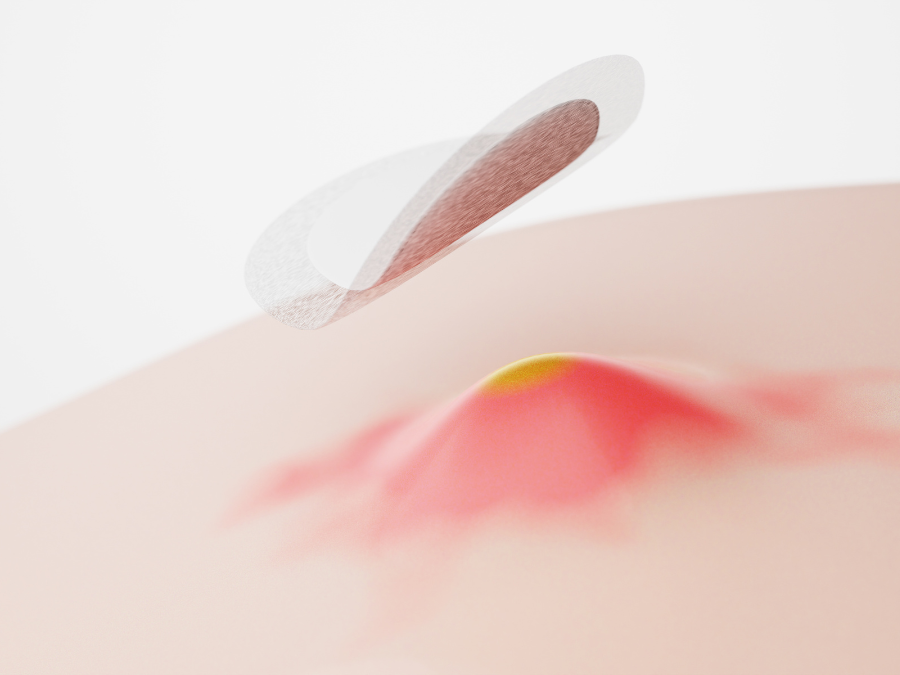
Now, acne is like a tiny garden of unwanted weeds (pimples) sprouting on the skin’s surface.
It’s a drama starring oil, dead skin cells, and those pesky bacteria setting up camp in your pores.
Allergens can unintentionally feed this drama, giving it more screen time on your skin’s show.
Can Allergies Lead to Acne? How do Allergies Impact Skin?
Direct Skin Contact Allergens
Ever put on a necklace and noticed your neck turns into a red itchy map?
That’s direct contact with an allergen, like nickel, making your skin throw a fit.
Direct skin complaints can play a part in the grand acne play, as irritation can escalate into a breakout bash.
Food Allergies and Your Skin
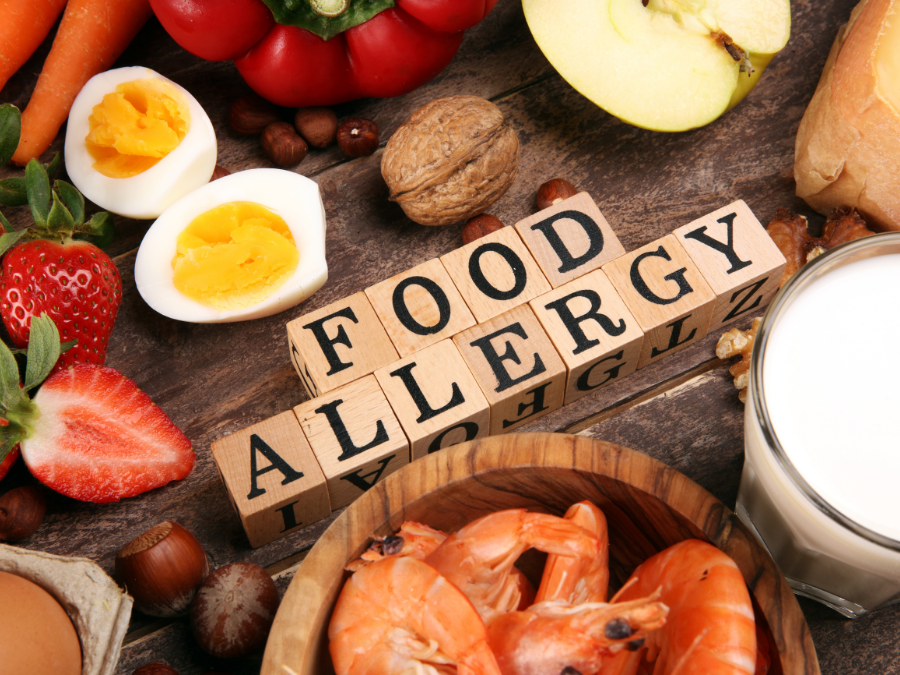
Maybe it’s that dairy milkshake or the sneaky peanut that works behind the scenes to worsen acne.
Food allergies can make your immune system lead a rebellion from within, and sometimes, your skin’s the battlefield.
Yes, that rebellion can march right up to Acne Town, waving its inflammatory flags along the way.
Seasonal Allergies Stirring the Pot
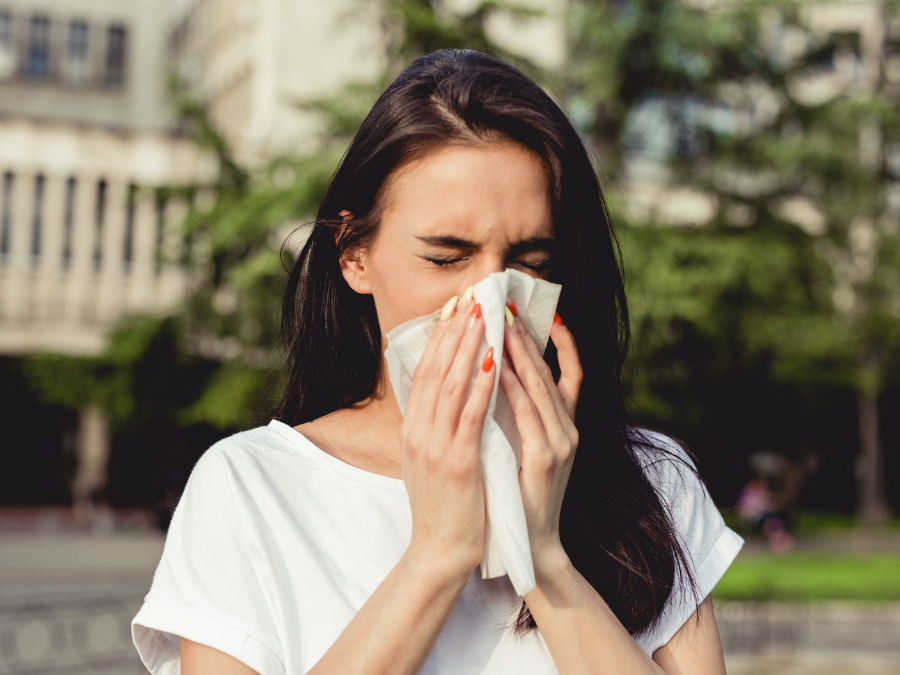
Pollen doesn’t just tickle your nose; it sometimes jabs at your skin.
As if your skin didn’t have enough to deal with, seasonal allergies join the fray, sneak-attacking your face with itchiness and potential breakout boosts.
Common Triggers for Allergies Caused Skin Breakouts
Skin breakouts can be caused by various triggers. Let’s explore the most common potential causes.
Direct Skin Contact Allergies:
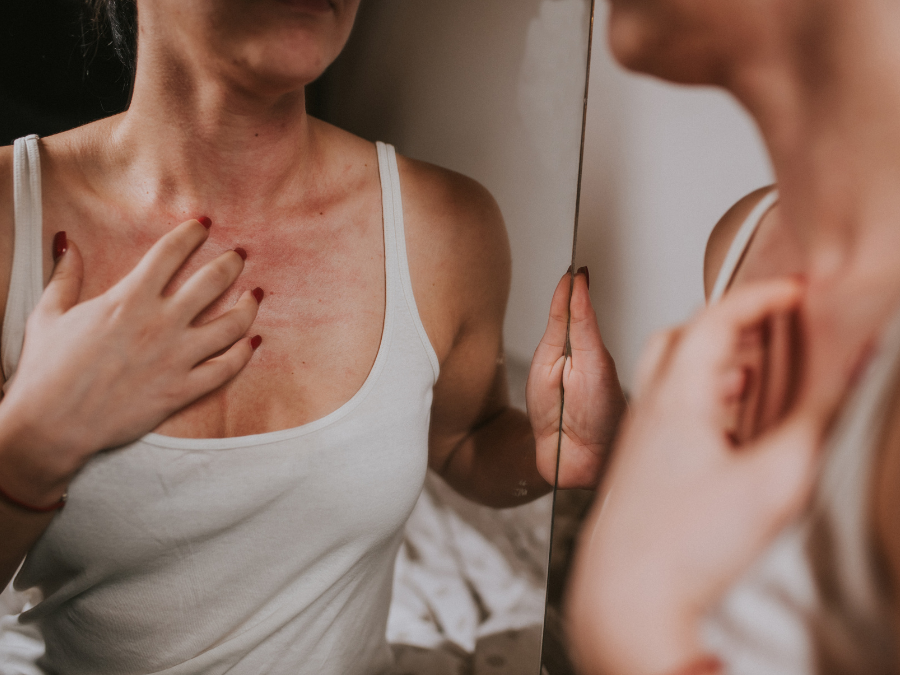
Common triggers for direct skin contact allergies include:
– Certain metals like nickel
– Fragrances and perfumes
– Latex
– Poison ivy, oak, and sumac
– Dyes and colorants
– Chemicals in cosmetics and personal care products include skin care items, bedding, clothes, laundry detergent, shampoo, soap, and more.
Food Allergies:

– Peanuts
– Tree nuts (such as almonds, cashews, and walnuts)
– Dairy products (like milk and cheese)
– Eggs
– Wheat
– Soy
– Fish
– Shellfish (such as shrimp, crab, and lobster)
Seasonal Allergies:
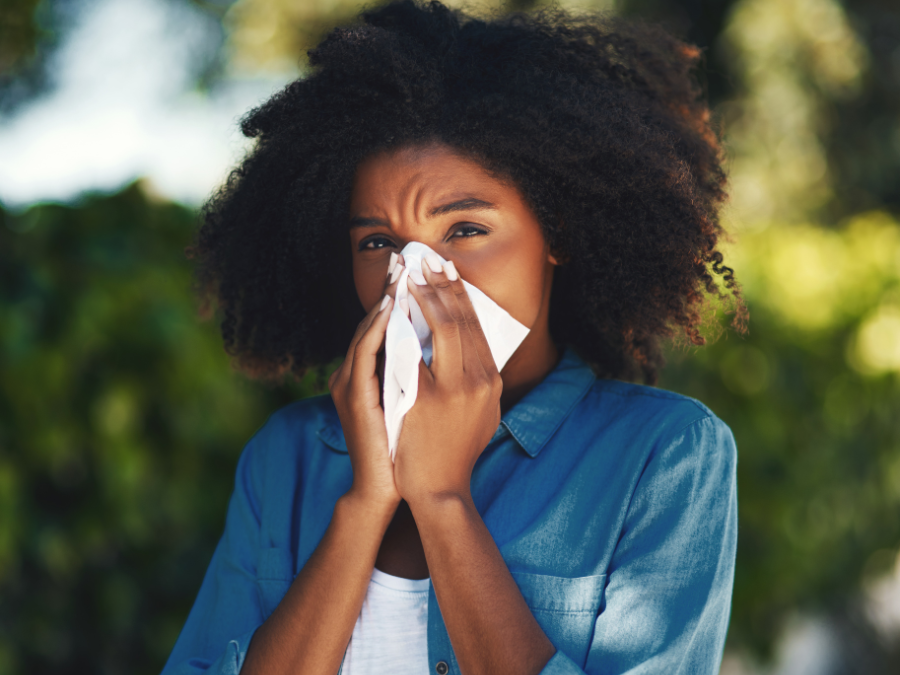
Seasonal allergies, also known as hay fever or allergic rhinitis, occur during specific times of the year when certain plants release pollen.
Common triggers include:
– Grass pollen
– Tree pollen
– Weed pollen.
Environmental Factors:

Environmental allergies can be triggered by:
– Dust mites
– Pet dander
– Mold spores
– Certain chemicals
Don’t forget to explore additional resources on managing allergies.
6 Effective Treatments for Skin Breakouts
Know Thy Enemy – Allergy Testing
First off, let’s play detective. Before we explore the solution, it is crucial to identify the root causes.
Find out the allergens by doing an allergy test.
It’s like shining a spotlight on the villains in this acne mystery novel.
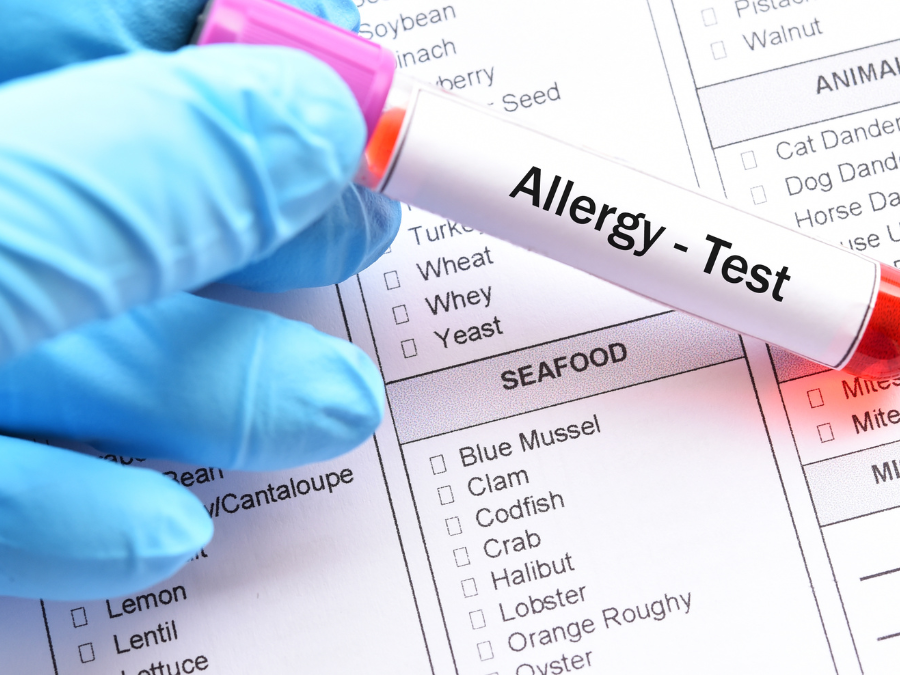
With your allergens identified, you can strategize your breakout battle plans.
You can easily test a variety of products at home. Take a look at the following options.
Discover the hidden enemy in your everyday life.
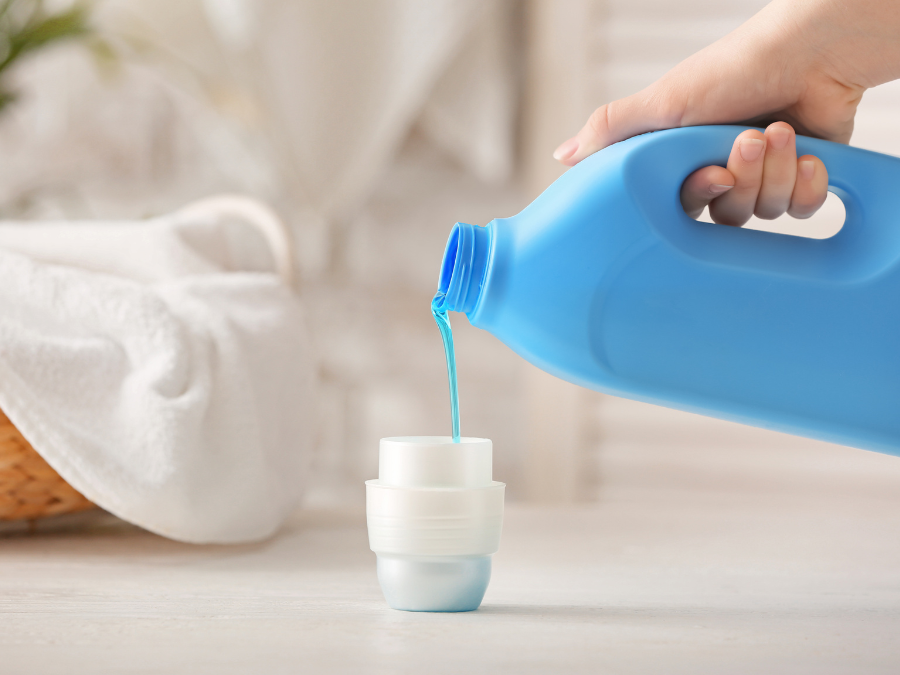
Ensure to check every product that comes into contact with your skin, including skin care products, soaps, laundry detergents, clothing, and bedding.
These items have the potential to cause skin breakouts, especially if you have sensitive skin. Taking this precautionary step will help maintain the health and well-being of your skin.
Suitable Skincare – Your Shield and Armor
Equip yourself with the right skincare products. Steer clear of the enemy – irritants and allergens.
Think of it as wearing a full suit of armor that dismisses unwanted irritating invaders and holds the fort against the siege of acne.
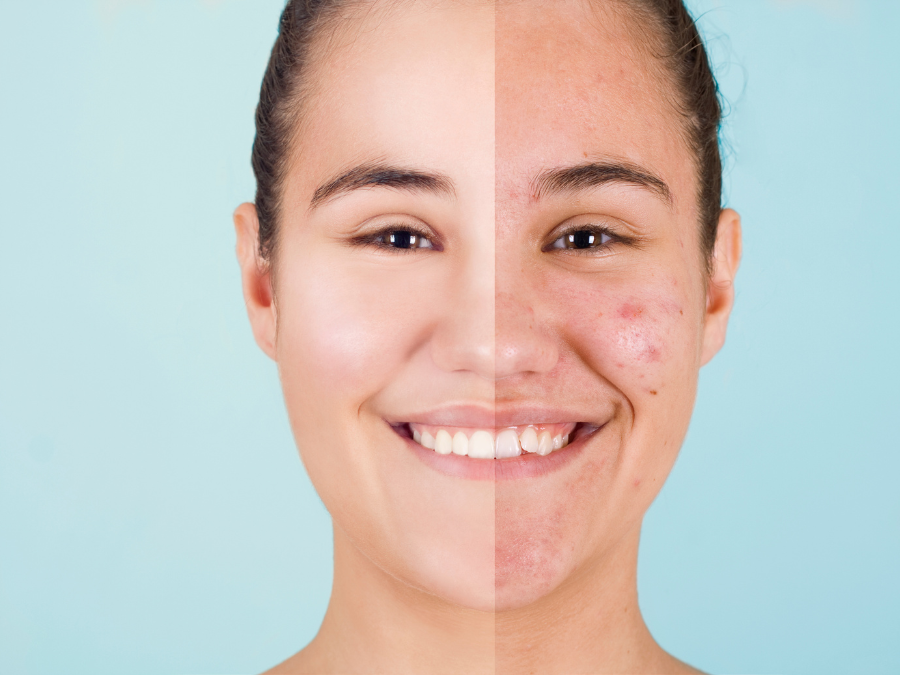
Recommended products are those with gentle and natural ingredients that are suitable for your skin type.
- Skin Cleanser for Sensitive Skin
- Facial Moisturizer for Sensitive Skin
- Moisturizing Cream for Sensitive Skin
Keep Your Skin Clean and Hydrated

Cleanse and moisturize your skin regularly to remove any dirt, oil, or bacteria that may be clogging your pores.
This will help prevent breakouts and maintain the overall health of your skin.
Using a gentle cleanser specifically formulated for your skin type is ideal.
Follow up with a hydrating moisturizer to keep your skin nourished and healthy.
Medication – Calling in the Cavalry
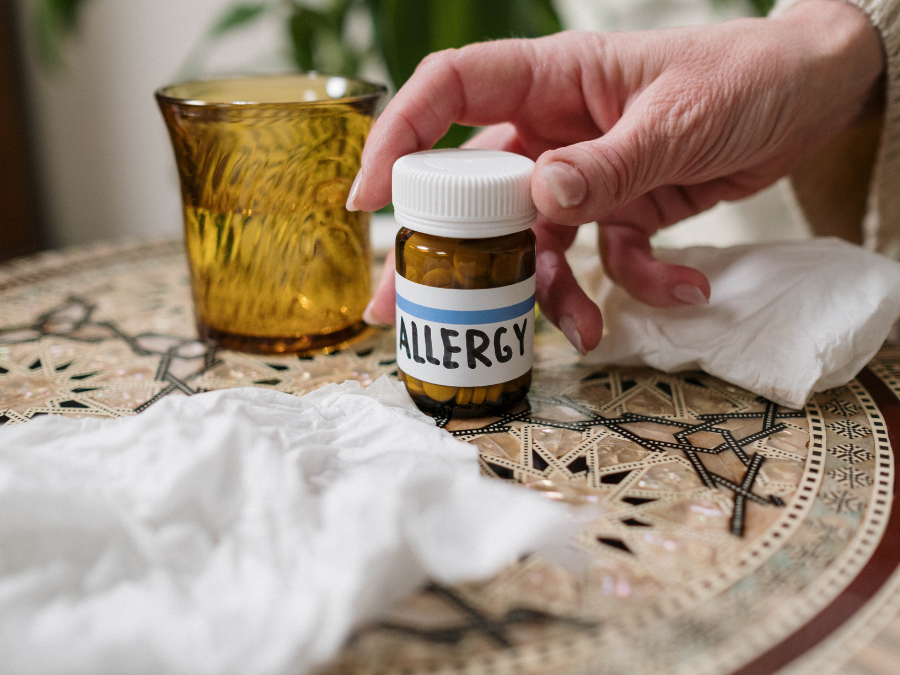
When things get tough, sometimes you need backup.
Medications like antihistamines reduce the allergic reaction, signaling a retreat of skin irritation forces.
Meanwhile, acne treatments like benzoyl peroxide come in swinging to fight the breakouts head-on.
* Before commencing any treatment, it is crucial to seek guidance from your healthcare provider.*
Topical Treatment – The First Line of Defense
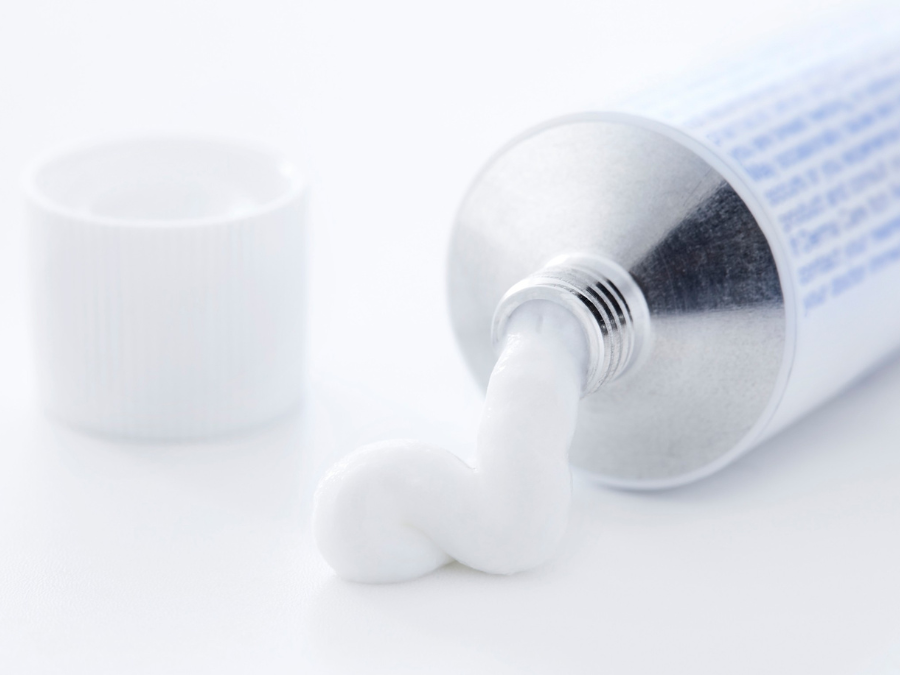
In case your skin does come under attack, topical treatments are your first line of defense.
Look for products with active ingredients like salicylic acid and benzoyl peroxide, which are known to fight against acne-causing bacteria.
What’s the Deal with Food Allergies and Acne?: Foods That Can Trigger Acne
Discover the significant world of common food allergens that can cause allergic reactions.
Say What? Dairy and Acne!
Across the fields, cows are mooing, but could they also be contributing to your skin woes? Let’s find out.

Unpacking the Dairy Dilemma
Some studies suggest dairy, especially skim milk, may increase acne breakouts.
Hormones in cow’s milk could disrupt our own hormonal balance, causing unwanted zits.
Sensitivity varies, so consider reducing dairy or trying non-dairy alternatives to improve your skin.
The Sweet Truth About Sugar
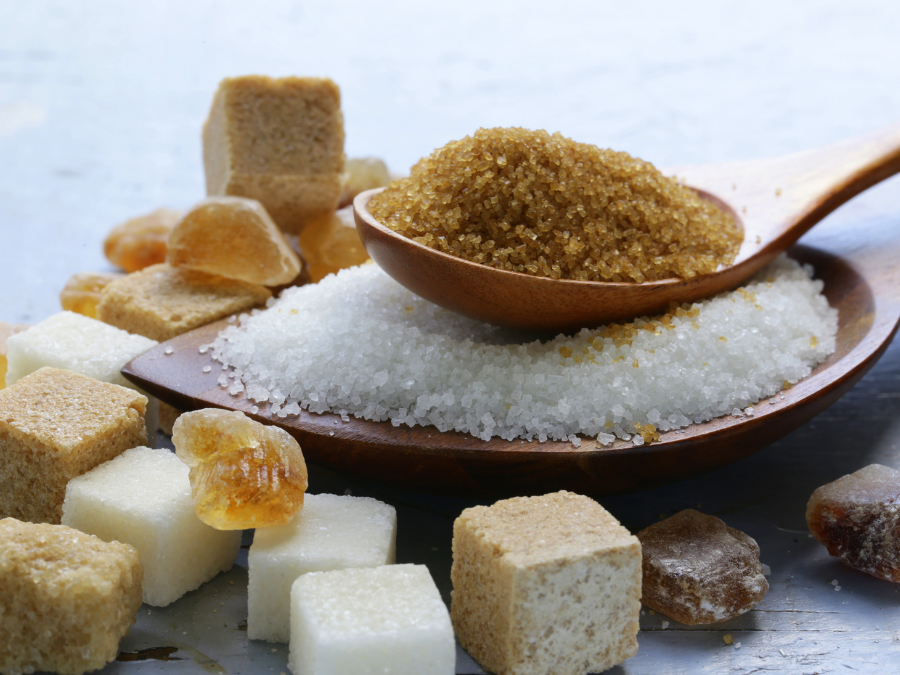
Our tastebuds may love them, but our skin might beg to differ.
High blood sugar levels can cause inflammation in the body, leading to breakouts and other skin issues.
Reducing the intake of simple carbohydrates such as white rice and bread, while increasing food protein, can significantly improve our skin condition.
Avoid high glycemic food

High glycemic food, such as white bread, processed snacks, and sugary drinks, cause a spike in blood sugar levels.
This can lead to a cascade of events that result in inflammation and breakouts.
By choosing low glycemic options like whole grains, fruits, vegetables, and lean protein sources, not only will you keep your skin happy but also improve your overall health.
Salt Dries Out Your Skin

On the other hand, salty snacks can dehydrate the skin, leading to dullness and dry skin.
But don’t worry, you don’t have to give up your favorite chips and pretzels completely.
It’s all about moderation when it comes to these tasty treats.
Just make sure to drink plenty of water and balance out your salty snacks with hydrating foods like fruits and veggies.
Fast Food Frenzy: How Burgers and Fries Affect Your Skin
A fast-food burger is a quick fix for hunger, but is it also a quick ticket to acne town?

The Fast Food Flare-Up Factor
Fast food can worsen acne due to high levels of unhealthy fats and inflammation-promoting ingredients.
Fast food is frequently prepared using heavily processed vegetable oils, which can contribute to excess sebum production and inflammation.
Cutting back on fast food can improve your complexion and overall health.
Spicy food: The Good, the Bad, and the Inflammatory
Spicy food can cause skin inflammation and acne breakouts. Heat in the food can lead to redness and flushing in the face.
Some spicy foods trigger histamines, causing hives or allergic reactions.

However, certain herbs and spices like turmeric have anti-inflammatory properties and may benefit the skin. Finding the right balance is key.
While it’s important to enjoy these foods in moderation, reducing your intake of these trigger foods may help improve your overall skin health.
It’s also important to note that everyone’s skin is different and may react differently to certain foods. Keeping a food diary can help you identify any potential triggers for your acne.
The Bottom Line
While there is no definitive proof that specific foods directly cause acne, it’s essential to be mindful of what you eat and how it affects your skin.
A diet heavy in processed, high-sugar, and high-fat foods can increase inflammation in the body and potentially lead to breakouts.
The Real MVPs: Healthy Snack Swaps and Convenient Supplements for Your Skin!
Now that we’ve pointed out some of the culprits behind pesky pimples, let’s talk about foods and supplements that can help promote clearer, healthier skin.
Antioxidant-Rich food:
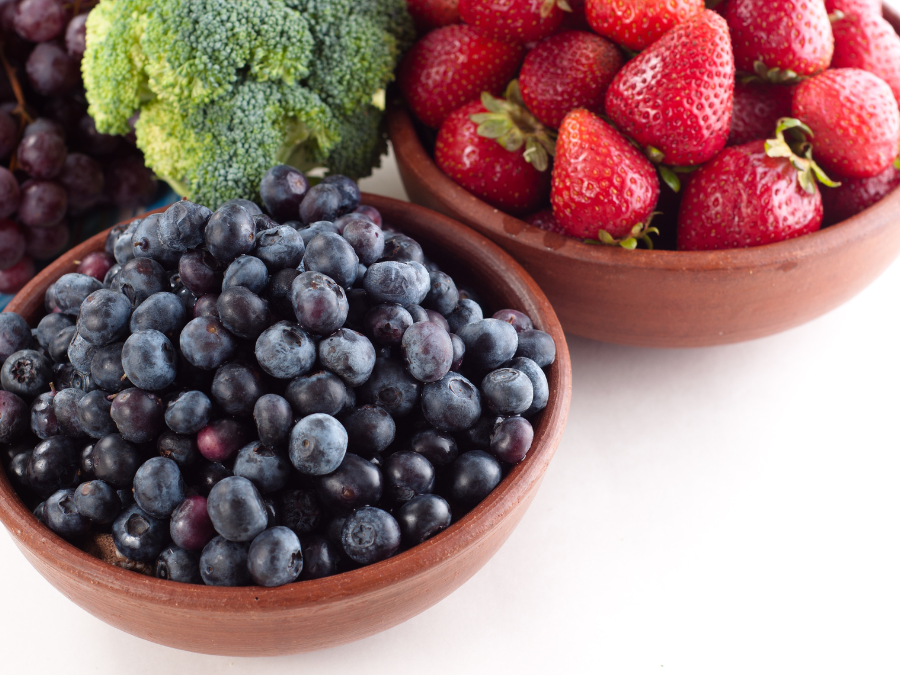
Antioxidants are important for maintaining healthy skin, as they help protect against damage from free radicals. Blueberries, dark leafy greens like spinach and kale, and green tea are all great sources of antioxidants.
Omega-3 Fatty Acids:
Fatty fish like salmon, sardines, and mackerel are rich in omega-3 fatty acids, which have been shown to have anti-inflammatory properties and may help reduce acne flare-ups.
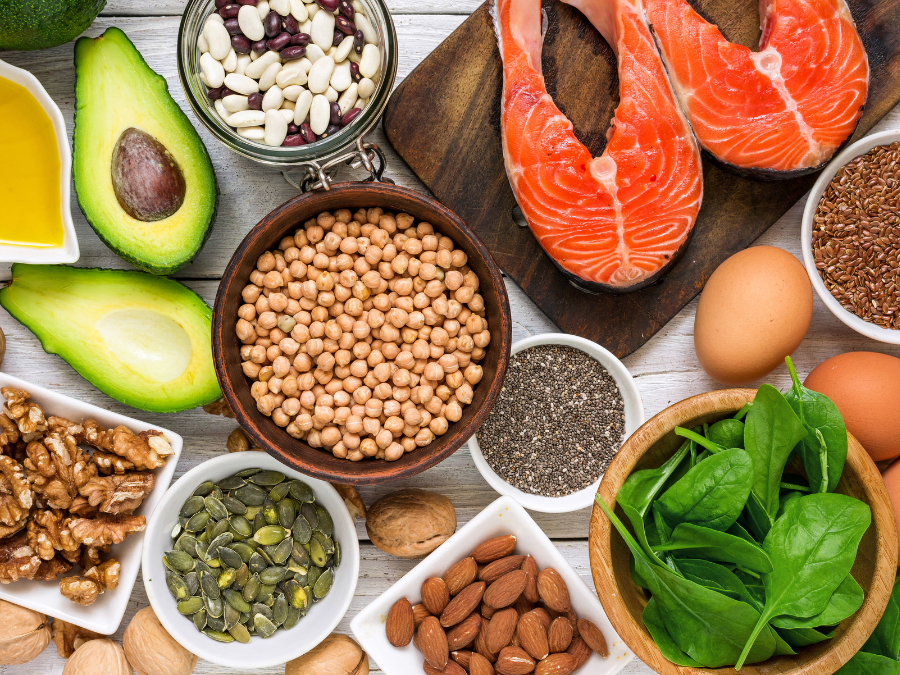
Plant-based sources of omega-3s include chia seeds, flaxseeds, and walnuts.
Probiotic-Rich Foods:
Probiotics not only support gut health but they may also have benefits for the skin.
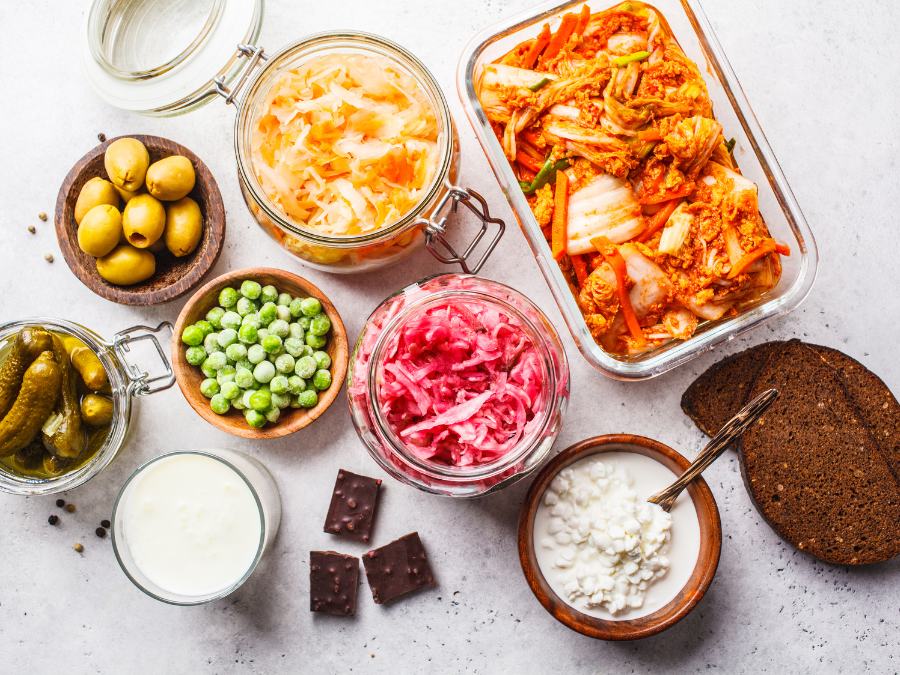
Yogurt, kimchi, and sauerkraut are all great sources of probiotics, which can help balance the good bacteria in your gut and improve overall skin health.
Vitamin C-Packed Fruits:

Oranges, kiwis, and papayas are loaded with vitamin C, which is essential for collagen production and maintaining a healthy skin barrier.
Leafy Green Vegetables:

Spinach, kale, and other leafy greens are rich in vitamins A and E, which can help fight acne-causing bacteria and promote healthy cell turnover.
Hydration is Key:

Drinking plenty of water not only helps keep our bodies functioning properly but it also plays a big role in maintaining healthy skin. Staying hydrated can help flush out toxins and keep our skin looking plump and radiant.
FAQs: Allies in Your Acne and Allergies Battle
- What foods should I avoid if I have food sensitivities and acne?
- Can seasonal allergies directly cause acne?
- What’s the best way to determine if my acne is linked to allergies?
- Can Food Allergies Cause Acne?
- Are There Any Foods That Can Help Prevent Acne?
- Can Certain Skincare Products Cause Allergic Reactions?
- What Should I Do If I Have Severe Allergic Reactions?
- Are There Any Natural Remedies for Allergies and Acne?
- What Foods Should I Avoid if I Have Acne?
- How Do I Know if My Acne is Triggered by Food Allergies?
What foods should I avoid if I have food sensitivities and acne?
If you’re facing this conundrum, it’s a good idea to sidestep dairy products, high glycemic foods, and any personal known triggers. It’s like avoiding the foods that bring their drama to your skin’s party.
Can seasonal allergies directly cause acne?
Seasonal allergies might not give you acne like a gift you never wanted, but they can make existing acne shout louder. It’s like they turn up the volume on the breakout music at your skin’s party.
What’s the best way to determine if my acne is linked to allergies?
The winning move is combining allergy testing with tracking your breakouts. It’s like being a detective, trailing the clues to find out if there’s a sneaky allergen behind the breakout curtain.
Can Food Allergies Cause Acne?
Simple answer: Yep, they sure can. But let’s break down the why and how. Allergic reactions can cause inflammation in the body, and this includes the skin. Inflammation can lead to clogged pores and breakouts.
Are There Any Foods That Can Help Prevent Acne?
While there is no specific food that has been proven to prevent acne, a balanced and healthy diet rich in fruits, vegetables, whole grains, and lean proteins may help keep your skin clear and healthy.
Additionally, avoiding foods that are known to trigger allergic reactions can also help prevent breakouts.
Can Certain Skincare Products Cause Allergic Reactions?
Yes, some skincare products may contain ingredients that can cause allergic reactions in certain individuals.
It’s important to read labels carefully and potentially patch-test new products before incorporating them into your routine.
If you notice any adverse reactions, stop using the product and consult with a dermatologist.
What Should I Do If I Have Severe Allergic Reactions?
If you have a history of severe allergic reactions, it’s important to always carry an epinephrine auto-injector with you and seek immediate medical attention if you experience any symptoms.
It’s also crucial to identify and avoid any trigger foods to prevent future reactions.
Are There Any Natural Remedies for Allergies and Acne?
Some people may find relief from allergy symptoms by using natural remedies such as essential oils, herbal supplements, or acupuncture.
However, it’s essential to consult with a healthcare professional before trying any new treatment method, especially if you have severe allergies.
What Foods Should I Avoid if I Have Acne?
Time to chat about the no-go items that might be the enemies of your epidermis.
Some studies suggest that consuming dairy, high-glycemic foods (such as white bread and sugary drinks), and unhealthy fats (like saturated and trans fats) may contribute to acne.
It’s best to limit or avoid these foods if you struggle with breakouts.
How Do I Know if My Acne is Triggered by Food Allergies?
Get the lowdown on which tests and signs might point to your pantry as the problem.
If you suspect that your acne may be caused by a food allergy, consult with an allergist or healthcare provider.
They can conduct various tests to determine possible trigger foods and create an individualized diet plan for managing your acne. Additionally, keeping a food diary can help you identify potential triggers through trial and error.
Remember, the story of allergies and acne could be an intricate plot with twists and turns. Navigating this narrative will improve with each clue you uncover. Arming yourself with knowledge, testing, and the right skincare arsenal, you can tackle the tandem troubles of allergies and acne, moving towards that epic happy ending: clearer, healthier skin.




